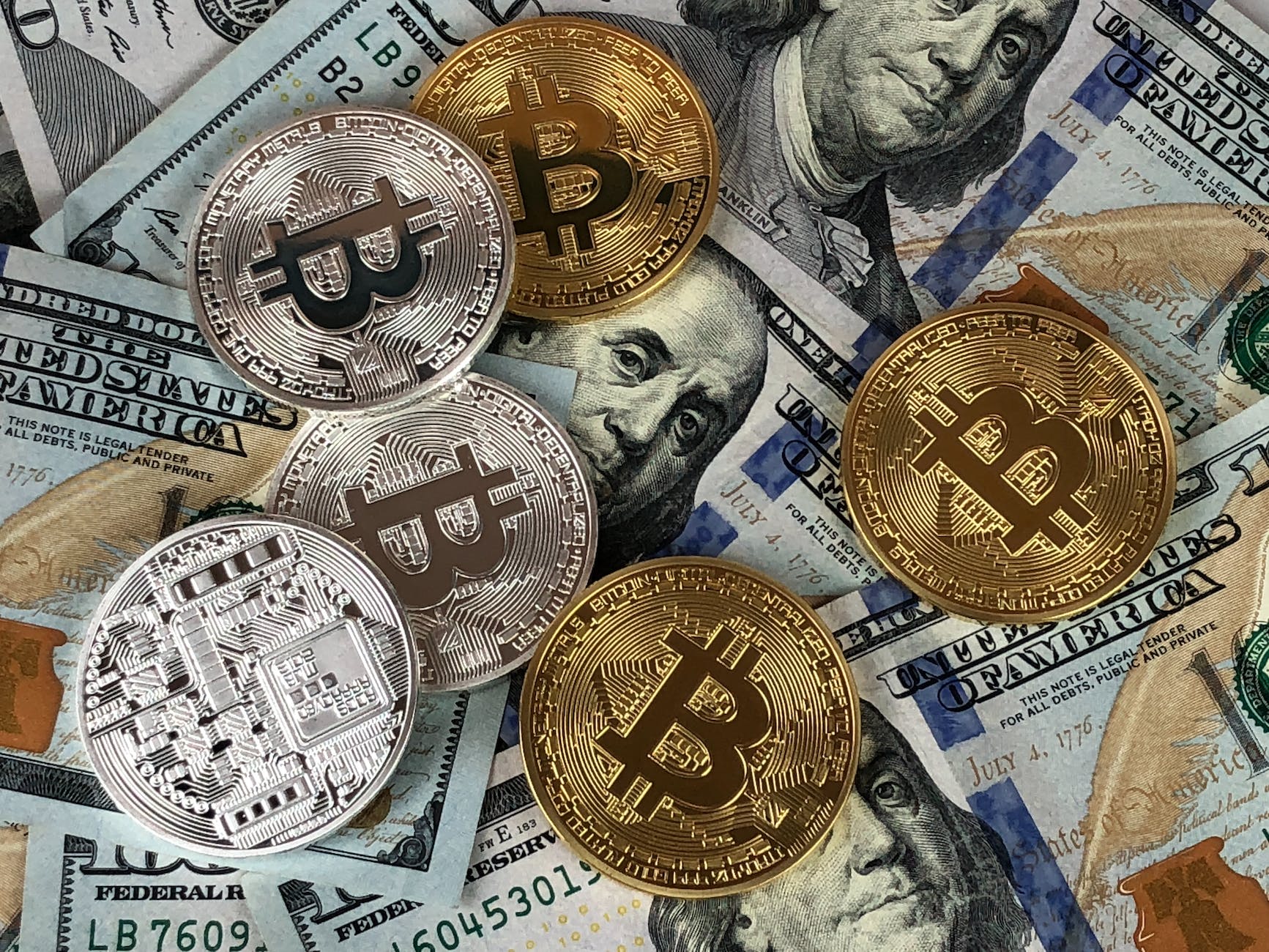
Analyzing the Cryptocurrency Market in 2024 – an Interview
A few days ago, a college student interviewed me for a project on the cryptocurrency market. The task turned out to be interesting as it forced me to analyze some personal perspectives on the current state of the market. Additionally, I believe it can help curious individuals discover the benefits and disadvantages of this financial phenomenon. Without further ado, here is a summary of the interview.
What made you think you wanted to invest in cryptocurrencies?
The first time I read about Bitcoin was around 2012. I remember diving deep into the topic, and I found it fascinating. It seemed great that a global currency would finally be created in an increasingly globalized world, dependent on the currency of every single government.
I believed that the potential to separate money from the state was enormous, but primarily, I was fascinated by the idea of an anti-inflationary currency. Inflation affects investors and savers significantly, as it is an indirect tax with a complex underlying rationale. Moreover, the concept of personal custody and the absence of a powerful authority in charge of the project seemed excellent to me. Anyone could participate, and it would be a completely democratized industry. Of course, it had and will have its ups and downs, but to a large extent, I saw Bitcoin as an excellent savings medium, considering it one of the greatest financial inventions in history.
Fun fact. Back in 2012, I decided to engage in a heated debate with my two parents (who are bankers) about Bitcoin, and they were on the verge of convincing me that it was a crazy idea that would be banned. Unfortunately, that episode delayed my entry as an investor…
What do you consider to be the main advantages of investing in cryptocurrencies compared to other traditional forms of investment?
- Greater potential for returns. The potential of this technology is enormous; projects that manage to scale can generate huge profits not found in traditional assets.
- Low fees. Depending on the blockchain used, it’s possible to send, buy, and sell money for cents, regardless of the amount traded. It’s possible to send cryptocurrencies anywhere in the world without having to pay the significant fees of today.
- Transaction speed. It’s possible to send money anywhere in the world in seconds. When you send money via bank transfer (SWIFT), it’s not processed on weekends, and the transfer takes approximately 24 to 72 hours.
- A 24/7 open market. Stock markets are open only on weekdays and at specific times, closing on holidays. The cryptocurrency market never closes.
- Anti-inflationary assets. One of the great advantages of cryptocurrencies, (not all of them) is that they have a fixed issuance cap established in the blockchain’s programming. Traditional fiat currency (like the dollar) has an infinite issuance controlled by governments that use it as they please, devaluing its value and indirectly charging that loss of value to the people.
- Personal custody. Cryptocurrencies can be stored directly in the owner’s hands. No one has access to your crypto if you wish. There is no bank freeze, government imposition, or bank failure that would make your assets unrecoverable by hosting them with a third party (bank, investment fund, etc.). Furthermore, there is no need to involve third parties in transactions, such as banks or intermediaries that charge commissions.
- Decentralization. There is no need to involve third parties in transactions, such as banks or intermediaries. Additionally, cryptocurrencies are not restrictive; anyone can have them anywhere in the world without going through complex paperwork and approvals. Many countries make it almost impossible to receive money from abroad due to high bank fees, negligible taxes, or prohibitive laws (Africa, Argentina, or Venezuela are examples where the use of cryptocurrencies is widespread). The notion of banning cryptocurrencies does not exist; companies that require registration approved by a country’s tax authority can be banned, but no one can prohibit anyone in the world from owning them. There is no government that controls them, and they are the only truly global currencies.
It is known that investing in cryptocurrencies comes with certain risks. What disadvantages do you identify in this type of investment?
Investing in cryptocurrencies, in general, is considered a high-risk endeavor. I would not recommend anyone to invest more than 10 or 15% of their investment portfolio in cryptocurrencies. However, even a 3-5% investment in this asset class can lead to a significant improvement in overall portfolio returns.
The disadvantages of investing in cryptocurrencies are many. Among them, I highlight the following:
- High volatility. This is a significant disadvantage for those who are risk-averse. Those who invest in cryptocurrencies should think long-term because the cryptocurrency market is still underdeveloped. Cryptocurrencies can rise 200% one year and fall 90% the next; in fact, the vast majority of cryptocurrencies are unsustainable and will disappear.
- Detractors. Cryptocurrencies are rivals to very powerful entities and individuals who would obviously prefer them not to succeed, such as governments, large investment funds, and multinational companies. It is known that in recent weeks, U.S. regulatory commissions (SEC) have been doing everything in their power to harm the cryptocurrency market. A cryptocurrency does not allow direct control over it, and the U.S. has the ability to print dollars and finance all its activities very cheaply since they are the world’s reserve currency, and their security makes any country want to buy the debt issued in dollars (the U.S. has an external debt exceeding $30 trillion and is constantly growing in a knowingly unsustainable system). Other governments that profit from subduing the population, such as China, see cryptocurrencies as a threat to their control, at least over the monetary or financial system.
- Frauds. The cryptocurrency market is full of hackers and scammers, i.e., people and organizations that seek to steal money from buyers or investors. News is full of fraud cases, such as the Mt. Gox hack, which was the largest exchange in the early years of the market, the recent FTX fraud, Celsius fraud, hackers using phishing to extract cryptocurrencies from users, and many more thefts. There are individuals who create cryptocurrencies only for people to buy them and make them rich, and then they abandon the project (the term used for this is “rug pull”). When investing in cryptocurrencies, one must be extremely careful and try to avoid others holding your coins.
- Entry barriers. The reality is that cryptocurrencies still need further development to scale and be used by the entire population. Investing or transacting with cryptocurrencies requires knowledge, especially to maintain the required security to avoid a hack. That’s why it requires specific market-related information. Moreover, as it is an asset that basically depends on oneself, knowledge becomes a fundamental factor.
- Developing market. The cryptocurrency market is still in its early stages, and widespread use cases are still few. The potential is enormous, and over the years, errors are corrected, and protocols are adjusted, but the reality is that we have not seen a takeoff yet. Certainly, even established laws regarding companies related to the field and tax payments do not exist. Recently, the European Union passed a law regulating them, and we know that China “banned” cryptocurrencies (at least centralized companies), but there is still a long way to go. Many powerful players will not engage with the cryptocurrency market until the laws are clear.
- Lack of protection. Cryptocurrencies return purchasing power to the individual, and as mentioned earlier, governments do not benefit from the rise of these instruments. That’s why there is virtually no protection from government agencies for cryptocurrency holders in case of a hack, fraudulent project, or platform; no one will come to rescue your money. Sometimes, in the fiat world, it is not much different, but there is a bit more protection in certain investments, such as the stock market.
I would like to debunk a popular belief that cryptocurrencies are used to finance illicit activities. Reports from Chainalysis state that only 0.15% of cryptocurrency transactions are for illegal purposes, which does not significantly differ from transactions with fiat currency.
Many people have fears about this type of investment due to its volatility (cryptocurrency market prices fluctuate heavily). Did you feared investing? How did you overcome this?
That fear is well-founded, and it’s good that it’s real. I started studying the topic in 2015 and began investing gradually. The truth is, more than once, I wanted to sell everything and thought the sector had no future, but nowadays, I am convinced that it holds a lot of promise. Throughout this time, I have both gained and lost a lot of money, and the associated ups and downs are tremendous, but you begin to understand how it works and get used to it.
It is crucial to engage with reliable cryptocurrency projects with a good track record, strong teams, and platforms. There are more than 20,000 cryptocurrencies, and creating them is very easy. One of the keys I have found while studying the topic is to stick with the most solid projects like Ethereum and Bitcoin and think long-term. I believe that investing in cryptocurrencies is not a passive activity unless you do it in a very particular way, which could be buying Bitcoin and transferring it to a cold wallet. Otherwise, it requires at least staying informed and up-to-date. This asset class is very new and constantly changing, and I dedicate many hours of my time to it.
How do you think the cryptocurrency market will evolve in the future?
First and foremost, I believe it will evolve much better than the average person thinks. We need to understand that such innovative developments require a lot of adjustment time before they scale. Nowadays, there are thousands of developers creating this technology, which has clearly come to stay.
I do not believe that cryptocurrencies will replace the financial system in the medium term; I think they will have their space, as they already do, and gradually the crypto world will gain more followers. Usability is still low, but there are very promising cases. The first computer was created in 1964, but how many years passed before the first one appeared in your home? The internet was invented in 1983, but it also took time for the first lucky ones to use it. Yes, we had the dot-com bubble in 2000, and we also had crypto bubbles, but none killed development; they did sink many companies, though. Many people talk about AI, the new hype, but few understand that this is its takeoff; artificial intelligence has been developing for several decades.
What future cryptocurrencies use cases do you see in the future?
Beyond the current functions of cryptocurrencies, such as being an anti-inflationary store of value (like gold), the ability to transact value without restrictions anywhere in the world, I believe the cryptocurrency market is taking steps to go further. One of the main uses I see as promising for cryptocurrencies in the medium term is their relationship with real-world assets. There are already cryptocurrency companies launching tokenized property sales, providing loans via the blockchain, and financing commodities through the blockchain.
Some cryptocurrency companies allow the purchase of “parts” of properties on the blockchain. Thanks to smart contracts, you can buy very small parts of a property and even receive rental income. The blockchain enables very fast management, allowing thousands of property owners, providing liquidity to the asset, and democratizing ownership. In turn, other companies allow anyone to invest in parts of loans to businesses and collect interest, as well as decide which companies to approve and what interest rates to charge. These, while being crypto projects, function as companies and are economically sustainable. To name a few related projects, LandX, Harbor, RealIT, Republic, Goldfinch, and Ondo Finance operate today.
NFTs have allowed marketing to leap into virtual reality. Companies like Starbucks, Nike, Tiffany’s, Gucci, and Adidas use this technology with great customer loyalty results. The applications for NFTs in art are immense; there are already crypto music projects that return power to musicians and artistic design projects. Finally, decentralized finance represents another significant potential.
While they are intrinsic to cryptocurrencies, there are projects like GMX and GNS that are blockchain trading platforms. The benefits compared to traditional money platforms are that they operate very quickly, have low entry requirements, deal with cryptocurrencies and real-world assets, allow for enormous leverage, and, mainly, are managed by DAOs. Decentralized Autonomous Organizations are another very interesting invention of the crypto world. They are essentially “democratized companies” in which all token (asset) owners of the project can participate with votes, proposals, and decisions. In short, if I buy tokens, for example, from GMX, I have the right to vote on the project’s management and the company’s profits will be distributed to me in proportion to my holdings. The owners of these exchanges are the investors themselves, and you can be part of one of these organizations with very little money.
Conclusion on the cryptocurrency market
In conclusion, since I could talk much more about the market’s potential, I believe that the sector faces many battles and ups and downs, but I no longer have doubts about its promising future. The cryptocurrency market needs to gradually eliminate bad actors, the technology still needs to correct many errors, and the laws for the asset class need to be clarified by governments. Once these stages are overcome, cryptocurrencies will have fertile ground and may expand to an unprecedented level of utility.

